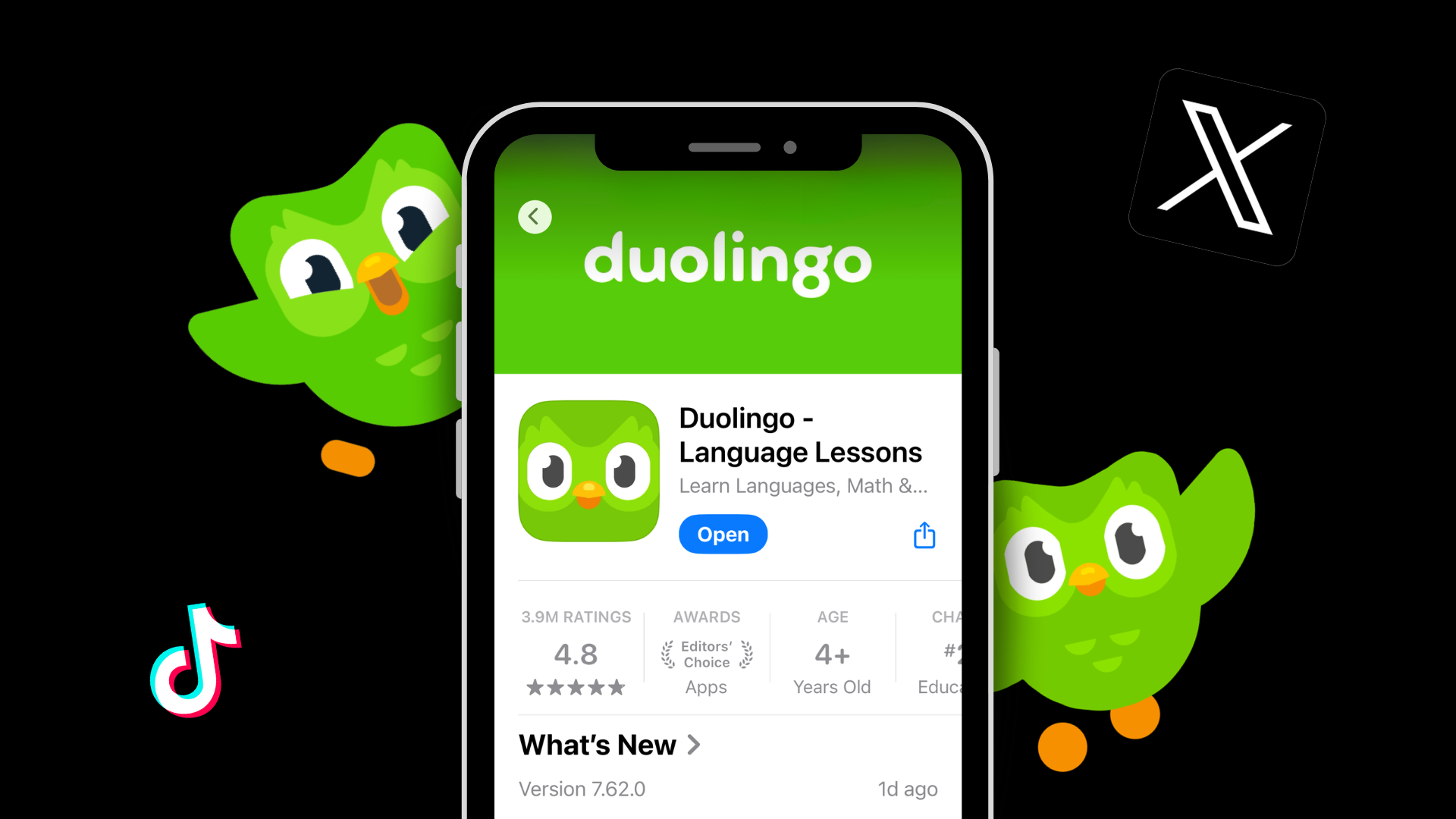Duolingo: How The Owl Took Over Social Media

When you think of Duolingo, chances are you picture that little green owl staring you down, reminding you (sometimes aggressively) to practice your language skills. But Duo isn't just a pushy app mascot—it’s a social media icon. Over the past few years, Duolingo has absolutely crushed the social media game, turning their brand into a viral sensation. Let’s break down how they did it and what businesses can learn from their success.
Memes, Humor, and Internet Culture
Duolingo doesn’t just post on social media—it owns it. Instead of using traditional ads, Duolingo leans into humor, memes, and internet trends to engage users. They’ve mastered the art of creating content that feels native to platforms like TikTok, making people want to interact with them instead of scrolling past.
They fully embrace Duo’s chaotic energy, whether it’s posting wild TikToks, hopping on the latest meme trends, or even poking fun at how intense their own notifications are. By making their content feel fun and relatable, they’ve built a strong online presence that keeps people entertained and engaged with their brand.
The Owl with a Personality
Duo isn't just a cute mascot; he has a whole personality—and it’s unhinged in the best way. The brand leans into Duo’s “obsessive” need for you to keep up your streak, turning what could be an annoying app notification into an ongoing joke that users love. From Duo threatening to find you if you skip a lesson to playfully roasting followers in the comments, this character-driven marketing approach makes learning with Duolingo feel more personal and fun.
@duolingo I’m a S T A R ✨ #duolingo #barbie #languagelearning ♬ original sound - Barbie Movie
Duolingo’s TikTok Takeover
In 2021, Duolingo hopped onto TikTok, and it’s been pure gold ever since. Their mascot, Duo, became the star of hilarious, sometimes totally chaotic videos that fit right in with TikTok culture. Instead of just promoting their app, they made content that people actually want to watch—think Duo twerking in the office or thirsting over celebrity crushes.
And it worked. People loved the energy, leading to millions of likes, shares, and follows. Even better, Duolingo’s social media team actively responds to comments, keeping the engagement high and making followers feel like they’re in on the joke.
@duolingo It was all by design because I’m a mastermind #duolingo ♬ Suspense - Loppes
@duolingo wdym i can’t just “yo como manzanas” my way through life #duolingo #languagelearning ♬ NO SOUND - Sok Baraby
The Numbers Don’t Lie
Duolingo’s success isn’t just about being funny—it’s driving real results. Check this out:
- 100 million active users (people who’ve done a lesson in the last month)
- 34 million daily app users
- $12.27 billion market cap as of October 2024 (up from $2.85 billion in 2022)
(Source: BBC, Duolingo / Luis von Ahn)
That’s some serious growth, and a big part of it comes from how they’ve turned social media into a marketing powerhouse—without fully relying on traditional advertising.
What Other Brands Can Learn
Duolingo isn’t the only brand that’s nailed social media. Wendy’s set the standard years ago with their snarky Twitter (X) roasts, proving that brands with personality stand out. But Duolingo has taken it to another level, proving that being fun and engaging online can translate to real-world business success.
So, what’s the takeaway for other businesses?
- Be relatable – Don’t just post ads; create content people actually enjoy.
- Have a personality – Whether it’s snarky, funny, or chaotic, make your brand human.
- Engage with your audience – Respond to comments, join trends, and make people feel part of the conversation.
- Don’t be afraid to be bold – The best brands stand out because they take risks.
Duolingo turned a simple language-learning app into a social media phenomenon. If your brand is willing to embrace creativity, humor, and internet culture, you might just be the next big thing online.


